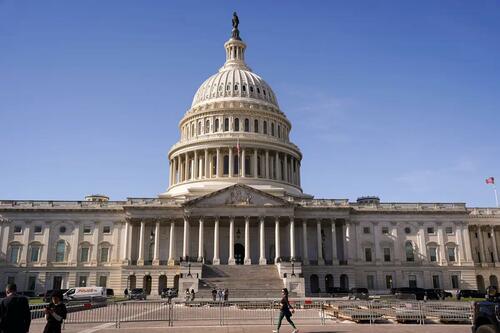It usually isn’t great news for a politician when a newspaper reports that you threatened the Special Olympics, but it was just another day for Florida state Rep. Randy Fine, a bombastic Republican millionaire.
Last April, Florida Today obtained text messages showing Fine had warned a West Melbourne City Council member that state funding for a Special Olympics event in the town was now at risk because the city had invited one of Fine’s political opponents—a Brevard County school board member named Jennifer Jenkins, whom Fine had previously called a “whore“—to a fundraiser. “Jenkins just put your project and special Olympics funding on the veto list,” Fine texted.
In another state, those texts might have stayed secret, but in Florida they were public property—and were revealed by a public records request. The City Council member told Florida Today that Fine objected to their release and wanted a city attorney handling the records request to be fired. Fine denied that the message was a threat or that he wanted anyone fired, although it’s hard to read his message any other way.
Florida has a particularly strong public records law that guarantees access to records from all three branches of state government, including the Legislature, giving news readers frequent glimpses into the machinations of its less gifted public servants.
Florida’s Sunshine Law was born out of a long fight to rein in the buffoonish corruption that has plagued the state since its birth, and the law became an improbable model for other states. Florida’s robust transparency laws may have also contributed to its status as a world-class generator of weird and scandalous headlines, cementing the bizarre comic persona of Florida Man in the process.
Over the years, reporters have used records requests to reveal the unjust seizure of millions of dollars from minority motorists, preferential treatment of college football players by police, fraud in Florida’s state lottery, and several instances of police chiefs and federal prosecutors caught on body cameras trying to use their authority to wiggle out of traffic stops.
But numerous carve-outs by the state Legislature and aggressive work by Gov. Ron DeSantis to create new exemptions to the Sunshine Law have weakened it. Like the critically endangered Florida panther, the Sunshine Law is being steadily squeezed out of existence by the same politicians who celebrate it.
David Cuillier, director of the Joseph L. Brechner Freedom of Information Project at the University of Florida, explains the rollback with a Florida metaphor: hurricane season. “We have a Cat 3 secrecy-cane forming in humid waters, and it’s about to make landfall as a Cat 5,” Cuillier says. “I don’t mean to use hyperbole here, but this increasing secrecy in Florida and around the country—which is well-documented with data, we’re just not making it up—threatens the ability for people to control the tools that they created: their government.”
Florida Man and Other Exotic Species
You know Florida Man. You’ve probably read about him carrying an alligator into a liquor store, or calling 911 to get a ride to Hooters, or hiding boxes of top-secret documents in his bathroom.
The Florida Man meme has defined the modern conception of the state as a zoo full of sun-baked party monsters, drunken daredevils, deadly animals, and astoundingly dumb criminals.
Florida has always been a silly place. In 1868, the state’s second lieutenant governor, a corrupt carpetbagger named William Henry Gleason, declared himself governor and set up a rival chief executive office in a hotel. Barred from the Capitol by the governor’s armed supporters, Gleason issued official-looking documents from his government-in-exile suite until he was removed from office (and presumably the hotel) for failing to meet residency requirements.
But the birth of the modern Florida Man meme can be traced to three events. The first was the creation of a Florida tag on the snarky news aggregator Fark.com in the mid-2000s. The second was the time a naked Florida man allegedly high on bath salts ate someone’s face in 2012. (In a gruesome event that made international headlines, Rudy Eugene pinned another man, Ronald Poppo, to the ground and began chewing his face off, stopping only when a Miami police officer shot him several times.) The third event was the creation of the @_FloridaMan Twitter account several months after the face-eating incident.
Because of all this, the internet began meticulously tracking the misadventures of “the world’s worst superhero,” as the Twitter account dubbed its subject. The seemingly endless supply of stories and the enduring popularity of the meme has led many to wonder: Why is Florida so damn weird?
Some have suggested the Sunshine Law is a reason for the glut of insane news. Police reports and mug shots are readily available under the law, giving news outlets quick access to information about arrests. In the days after the cannibal attack, for example, news outlets were able to piece together the criminal histories of both Eugene and Poppo, and they later obtained police interview transcripts with Poppo and other witnesses. The explanation has appeared at CNN, the Miami New Times, and the Florida Man Wikipedia page, among others.
Craig Pittman, a longtime Florida reporter and the author of Oh, Florida! How America’s Weirdest State Influences the Rest of the Country, calls the state “the gift that keeps on giving” to newsreaders and journalists.
Indeed, a 2011 job ad for the Sarasota Herald-Tribune bragged that Florida is “arguably the best news state in the country and not just because of the great public records laws.”
It’s hard to argue with the claim that Florida is the lizard-brain nerve center of American weirdness. On the morning I interviewed Pittman, several Florida newspapers reported that leprosy appears now to be endemic in the state.
“I don’t think you can predict from one day to the next what the next big story is going to be,” Pittman says. “Who knew that leprosy would become a big story in Florida? It’s like, oh hey, a disease mentioned in the Bible.”
But Pittman is also a stickler for accuracy when it comes to these things. When I mention a viral story about an island near Tampa inhabited by a troop of herpes-infected monkeys, Pittman is quick to counter that, while it’s a great headline, it’s overblown. Sure, there is an island full of invasive rhesus macaques near Tampa, and granted, yes, about 25 percent of them have herpes B, which can be fatal in human beings, but they’re not infectious. Pittman points out the only times monkeys have transmitted herpes to humans have been in a laboratory setting.
Likewise, the theory that Florida’s Sunshine Law is a proximate cause of the Florida Man phenomenon has always struck Pitt-man as a bit too pat. It certainly doesn’t hurt to have open police records, he says, but you have to look at the other factors. Florida is the third most populous state, with a constant influx of new arrivals. The balmy climate is conducive to a volatile combination of outdoor shenanigans and day drinking. (Florida ranks first in the country in lightning fatalities and boating-related deaths.)
“A lot of the things that make Florida weird are not contained in the police logs,” Pittman says. “We’re the only state with mermaids on the state government payroll. The state employs python hunters. We’re the only state where we actually made a hippo an official citizen of the state so he could stay. That’s just not something you see anywhere else.”
There is also the dark side of the meme. The personified Florida Man is sort of a devil-may-care rogue—for instance, the Florida Man repeatedly apprehended by the Coast Guard for trying to cross the Atlantic Ocean in a giant inflatable hamster wheel—but there are real people behind the headlines, many of them in the middle of mental health crises or suffering from drug problems. For instance, the victim of the infamous face-eating cannibal case was a homeless man who is now permanently disfigured and blind. (There was also no actual evidence that the assailant was on bath salts.)
What if I told you the inflatable hamster wheel guy, Reza Baluchi, threatened to kill himself with a knife if the Coast Guard stopped him? Would you feel differently? What if you then learned he was an Iranian refugee who says he was imprisoned, tortured, and whipped by revolutionary police when he was a teenager? Or that he’s an ultramarathon runner who has run across the country several times, using his athletic talent and good-natured charm to promote peace and freedom? What if he just wants to run across the Atlantic Ocean in an inflatable bubble to affirm the unbreakable human spirit?
“My message is…no matter how many times you fail, you can do it,” Baluchi told the Miami New Times in 2016, after the Coast Guard scuttled his trip for the third time. “My goal is [to] make this so people say, ‘My God, they stop him three times, they destroy his bubble, but he made it. I can make it too.'”
These sorts of complexities have led to a critical reevaluation of the genre over the years. “Is It Okay to Laugh at Florida Man?” The Washington Post wondered in a 2019 feature. Freddie Campion, creator of the Florida Man Twitter account, retired it that same year.
“I never thought I was making fun of Florida,” Campion told the Post, “because Florida is America. It’s made up of people who moved here five years ago. Even when I think of Florida Man as a character, he moved to Florida after he faked his death in another state.”
Red Cross to the Rescue
The creation of Florida’s Sunshine Law is also a story about Florida men. In the 1950s and ’60s, thanks to malapportioned legislative districts, a bloc of rural Democratic state lawmakers known as the Pork Chop Gang controlled both chambers of the Legislature. Their priorities were upholding segregation, enriching themselves, and railing against subversives.
Emory “Red” Cross, a Gainesville Democrat who served first in the state House of Representatives and then in the state Senate, was disgusted with the shameless corruption. “The people were getting ripped off by secret meetings, not knowing what public officials were doing behind closed doors,” Cross told The Gainesville Sun in 2004.
Specifically, Cross was incensed that legislators were using privileged knowledge about the planned route of Interstate 75, better known as Alligator Alley, to buy up property and then make a handsome profit selling it back to the state.
“I had a very good friend who was on the road board helping his buddies,” Cross said. “It just wasn’t right.”
Florida had passed its first open government law in 1909. It was supposed to guarantee public access to government meetings and records, but the courts construed it narrowly and politicians mostly ignored it.
In 1957, Cross attended a fateful meeting of the Gainesville chapter of Sigma Delta Chi, a journalism fraternity that would later become the Society of Professional Journalists. Cross found sympathetic ears when he groused about the secret meetings, and he and several prominent Florida reporters began collecting examples of other open meetings laws from around the country. With Florida newspapers cheering him on, Cross then introduced what became known as his Government in the Sunshine bill every session for roughly a decade.
It was a lonely fight. Not a single legislator would co-sponsor his bill, and the Pork Chop Gang killed it every time it was introduced.
This would have likely continued ad infinitum, but in 1967 Florida was forced to redraw its legislative districts after the Supreme Court threw out its map, ending the Pork Chop Gang’s stranglehold on state politics. That year, the sunshine bill sailed through the Legislature and was signed by the governor. It created strict rules requiring all government meetings to be open to the public.
The same reapportionment ultimately cost Cross his seat. After his district was redrawn, he was defeated by a well-funded oil and gas distributor. Even when things change in Florida, they don’t change much.
But Cross’ legacy, the Sunshine Law, would be harder to dismantle. Over the ensuing decades, Florida courts interpreted it very broadly, cracking down on any unofficial meetings, no matter how benign, and expanding the scope of what was covered under the public records law.
In 1992, the state went even further, becoming the first in the country to adopt a constitutional amendment enshrining the right of access to government meetings and documents. It also expanded the Sunshine Law to cover judicial and legislative records, a relative rarity.
“Most of the states, it just applies to the executive branch, and that’s the case for the federal government, too,” Cuillier says.
The Current State of the Sunshine Law
So Florida’s journalists, citizen-sleuths, and other watchdogs have an advantage over those in many other states, at least on paper.
When Reason wanted to investigate how Florida school districts handled misconduct by police officers in schools, we shot records requests off to police departments and school districts across the state for internal disciplinary records and citizen complaints against school resource officers. The records we received included the case of a Miami-Dade Schools Police Department officer who was removed from his position after he sent sexually explicit texts to a teenage girl at the school he policed. An internal affairs summary obtained by Reason notes that, during the department’s investigation, the officer “refused to answer why he had sex toys in his department assigned vehicle.”
Until quite recently, these sorts of records were totally exempt from disclosure in New York and California, and even now it would take months or years, and possibly a lawsuit, to get departments in those states to hand them over.
Florida’s public records law is not without its flaws. Barbara Petersen, executive director of the Florida Center for Government Accountability, has defended Florida’s Sunshine Law through six governors’ administrations, going back to the 1990s. She says its two major problems are a lack of strong controls on fees and a lack of an appeals process.
Florida agencies are obligated to hand over a wide range of records, but there are not strong limits on how much they can charge requesters, allowing them to demand thousands and even tens of thousands of dollars for records that belong to the public. So while most agencies charged Reason between $100 and $200 for those police disciplinary records, The School District of Palm Beach County sent us an invoice for over $20,000.
This appears to be a recurring problem with the district. “I was working with a broadcast journalist down in Palm Beach County, and she made a request,” Petersen says. “She wanted the background checks of all volunteers in the classroom—somebody had sexually molested a child—and she was told it would cost her $60,000.”
Pittman remembers a case where the Pasco County Sheriff’s Office charged the St. Petersburg Times (now the Tampa Bay Times) $10,000 for disciplinary records. Back then, the paper could call the sheriff’s bluff and pay for it. But few newsrooms these days can afford to shell out that kind of money for public records.
There is nowhere to appeal an outrageous invoice. If, say, the Florida Department of Elder Affairs decides that it wants to redact information from reports of guardianship abuse, one’s only real recourse is to file a lawsuit.
In other states, ombudsmen and other positions provide layers of accountability. When Reason investigated abusive vehicle impound laws in Chicago, the city tried to charge $3,000 to run a simple query of its impound database, claiming that this would require “writing software.” After Reason appealed to the Illinois attorney general’s office, the city decided it could perform this laborious task for free.
In Texas, which has a unique system, any agency trying to withhold records for nonroutine reasons must appeal to the state attorney general’s office. This not only provides an automatic appeal process but creates a central repository of information on which agencies are rejecting records requests, from whom, and for what reason.
The federal Freedom of Information Act includes a statutory right to administrative appeal, and the Office of Government Information Services also offers mediation services.
There is no similar mechanism in Florida, or at least not one with teeth. The Florida attorney general’s office offers a mediation program to resolve public records disputes, but the program is voluntary, both sides must agree to it, and its decisions are not binding.
Meanwhile, the state has steadily chipped away at the Sunshine Law, adding new carve-outs and exemptions nearly every legislative session.
In 2018, Florida voters also adopted Amendment 6, more widely known as Marsy’s Law, a reasonable-sounding constitutional amendment to protect the privacy rights of crime victims. The law was named after Marsy Nicholas, a California woman who was stalked and murdered by her ex-boyfriend in 1983. Nicholas’ family has worked since then to pass laws expanding victims’ rights, first in California and then in several other states. Despite warnings from transparency advocates and civil rights groups that the law contained a Trojan horse for police to hide information about fatal shootings, Florida became one of six states that year to approve a Marsy’s Law amendment.
It wasn’t long before a Florida police department invoked Marsy’s Law to withhold the name of an officer involved in a fatal shooting.
The result of all this is that Florida’s Sunshine Law is much weaker in practice than in theory. Cuillier has quantitatively studied the outcomes of Sunshine Law requests, and the results do not uphold Florida’s vaunted reputation for transparency.
“If you asked for records in Florida 10 years ago, you’d get them about 39 percent of the time,” he says. “Well, now it’s dropped to about 35 percent of the time, and Florida ranked 31st in the nation for transparency on the ground, in real access to records.”
That trend has only accelerated under the current occupant of the Florida governor’s mansion.
“I’ve never seen anything like this before in 30-plus years,” Petersen says. “Gov. DeSantis is doing everything he can to obliterate the public’s right of access.”
Perks of the Office
In January, a Florida trial judge issued a stunning ruling in a public records lawsuit, declaring that DeSantis could invoke executive privilege to withhold records from the public.
The ruling was especially alarming because executive privilege—a nebulous power of the federal executive—simply did not exist in Florida law, nor had it ever been invoked by prior governors.
“There is no executive privilege in Florida,” says Petersen, whose group filed an amicus brief opposing the DeSantis administration’s position. “There’s never been, to our knowledge, an assertion of executive privilege in Florida, and this assertion was far broader than the limited executive privilege at the federal level.”
The DeSantis administration had been fishing for a judge willing to go along with its arguments. Three flatly rejected its executive privilege claims, but a Leon County Circuit Court judge was willing to play along. That ruling is now being appealed.
Where the courts have been unwilling to help the governor’s power grabs, the Florida Legislature, stacked with DeSantis allies, has been more than ready to step in. This year, state legislators also passed a bill making the governor’s travel records secret.
The law applies retroactively and covers DeSantis’ use of state planes throughout his time as governor. It would also cover records related to visitors to the governor’s mansion. Republicans claim that this was about safety issues, but the fact that it applied retroactively to previous trips somewhat gave away the game.
The DeSantis administration has also been routing records requests for other agencies to its legal office, creating months of delays for local and national media. The local outlet News 6 obtained a log of hundreds of requests that were routed to the governor’s legal office for secondary “review” (including one from Reason).
These delays keep news outlets from reporting on matters of public interest. For example, Reason waited more than eight months—and paid over $500 for—communications concerning the DeSantis administration’s efforts to yank the liquor licenses of venues that hosted drag shows.
Many courts have not looked as kindly on these tactics as the Leon County judge did. A different judge in the same circuit ruled in 2022 that the DeSantis administration violated the Sunshine Law when it refused to promptly provide the Florida Center for Government Accountability with records on its decision to use state funds to fly migrants from Texas to Martha’s Vineyard, Massachusetts.
Petersen says it was “the first time in Florida history that a governor had been found in violation of the public records law, and we’ve had a public records law since 1909.” That ruling is also being appealed.
These battles will directly affect how well Florida citizens can keep tabs on their own government. Consider the ways transparency and records retention laws have dominated presidential politics, between Hillary Clinton’s private server and Donald Trump’s bathroom full of classified documents.
Even if you hate the media, remember that Florida’s public records law has a fee-shifting provision. That means when DeSantis’ office loses a freedom of information lawsuit, the state has to pay lawyer fees for the plaintiff. For example, the administration’s petulant refusal to hand over COVID-19 data ended with the state of Florida being forced to pay $7,500 in taxpayers’ money to lawyers for the Orlando Sentinel. Does that sound like the libs being owned?
When a governor has contempt for the state’s public records law, that trickles down to state and local agencies as well. “Those flaws are magnified when you have someone like DeSantis in office,” Petersen says. “We’re seeing ridiculous delays. We’re seeing ridiculous fees.”
Florida Man Doing Fine
The anti-transparency atmosphere in Florida has been a boon for any Florida Man on the make. In April, a state ethics panel concluded that there was probable cause to believe Rep. Fine abused his position as a state lawmaker when he threatened the Special Olympics event in West Melbourne, but this was barely a setback for him.
Despite having no prior experience in higher education administration, Fine was reportedly hand-picked by DeSantis to be the new chancellor of Florida Atlantic University. When the state abruptly suspended the university’s search after three finalists were announced, there were unconfirmed rumors that this was because Fine didn’t make the shortlist. Fine has since turned on DeSantis and endorsed Trump, a move DeSantis called “pure politics,” according to Politico.
We may never know the details of this little imbroglio. Last year, the Florida Legislature passed a bill making much of public universities’ hiring search for presidents secret.
Florida Man is often funny, but what he’s doing to the Sunshine Law “really is quite serious,” Cuillier says.
“And it’s happening little by little every year, like we’re like frogs in the kettle,” he continues. “People just kind of notice it a little bit, but it’s not abrupt enough to lead to pushback. It’s really important that we, as citizens, hold firm on this and demand our leaders be transparent in doing our business. If this continues, we’re going to be in a sorry state.”
The post Monkey Herpes, Face Eating, and the Pork Chop Gang: How Public Records Laws Created the Florida Man appeared first on Reason.com.
from Latest https://ift.tt/AFVcy10
via IFTTT









